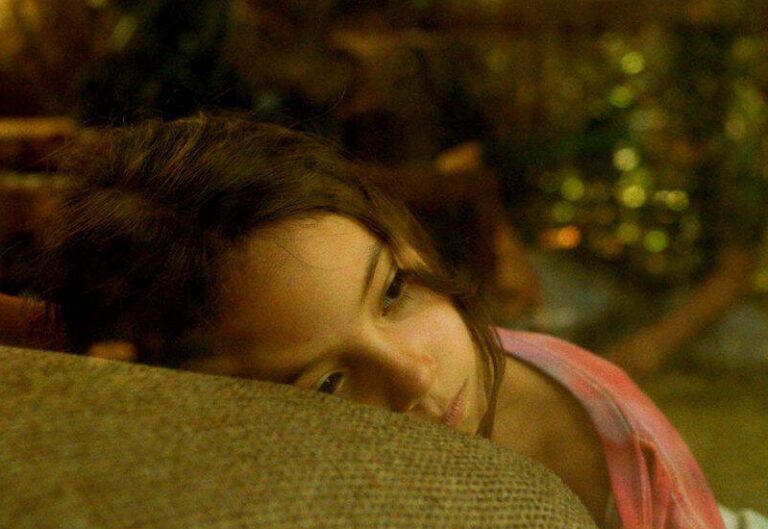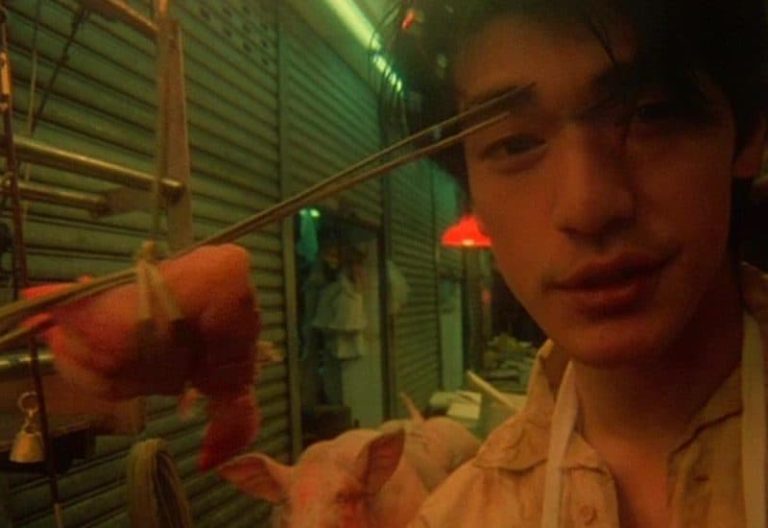only the river flows review
film by Wei Shujun (2023)
Wei Shujun’s ‘Only the River Flows’ opens with the lines ‘there is no understanding fate, therefore I choose to play the part of fate.’ With these lines, the audience is braced to be immersed into a world which is utterly devoid of hope. Instead, we are transported back to December 1995, to a small riverside town in rural China named Banpo. The community is suffering economically — in a time when urban areas were thriving, the state continued to disregard rural populations. As society continues to change rapidly and drastically, the insularity and secrecy of Banpo’s citizens proves to be their downfall.
Review by: Lauren Gallagher | August 10, 2024
Filed Under: Film Reviews
Only the River Flows is the third feature film by the celebrated Chinese arthouse director Wei Shujun and marks his first foray into the neo-noir genre. The film has been welcomed into the canon of East Asian neo-noir cinema, receiving flattering comparisons to films like Memories of Murder, Cure and Infernal Affairs.
Scenes are filled with a near-constant haze of cigarette smoke, leather jackets, heavy rainfall, dim overhead lighting, damaged cassette tapes, ominous background noises and sinister dialogue; all featuring a vintage grain effect that gives the film a sense of authenticity. It was filmed in 16mm, an analogue method which makes handheld shots easier to achieve and which added to the film’s grounded and retro aesthetic, rather than leaning towards the clean-cut, contemporary look audiences have come to expect from blockbusters and mainstream releases.

Only the River Flows closely follows a murder investigation led by the stoic detective Ma Zhe. While the case is solved quickly and the suspected killer is hastily apprehended, Ma Zhe begins to doubt the investigation’s findings and worries that the possibly corrupt police force has imprisoned an innocent person in an attempt to avoid public scrutiny. Ma Zhe lives with his wife, Bai Jie, who suffers from nightmares and a difficult pregnancy. It is revealed that if they continue the pregnancy, their child will be at a high risk of having serious medical complications. The couple argue about whether to terminate the pregnancy, causing immense tension both inside and out of the home. This subject is as topical as ever, and is one which is especially timely in the film’s 1990s setting (when Chinese law enforced a one-child policy).
Ma Zhe is informed by his superior that they are planning to use a recently closed down cinema as the office for his investigation, due to the privacy the windowless rooms would provide compared to the exposed and shabby police station. His superior notes that no one would find issue with this plan, as no one goes to the cinema anymore. This is the first of the film’s many surprisingly comical moments, with the humorous side characters providing some much needed respite from the otherwise dark story. The cinema quickly becomes the base for the murder investigation and is kept exactly as the police found it; containing traditional cinema seating, red carpeting, high curtains and discarded film reels in every corner, appealing to those who have made the venture to the cinema to watch the film.

The cinema, as well as the surrounding buildings and rain soaked streets make for a particularly grim portrait of everyday life in Banpo. Windows fall out of their frames, tiles crumble on rooftops, houses are small and in a state of disrepair. A local temple is no longer in use and has become some kind of community dumping ground. The cinema has been taken over by bureaucrats and a poetry reading is mocked. While the plot may not reflect it so plainly, a close examination of the town’s setting and characters provides a portrait of a community that is clearly suffering. Not only because of their financial situations, but also because of their lack of creative outlets, culture and freedom. Secrets tear families apart, art is scoffed at, and in perhaps the clearest example of this, Ma Zhe meets with a woman who has recently disclosed her transgender identity following the findings of the murder investigation. She thanks Ma Zhe for helping her live her life authentically, noting that the entire town now knows her former secret. This is one of the few scenes that depicts genuine joy, although it is swiftly undercut by the woman’s suicide.
As the film goes on, it becomes clear that Ma Zhe has been deeply psychologically affected by the crime and slowly begins to lose his grip on reality. It is first seen in relatively mundane ways, with Ma Zhe being convinced that he has lost a certificate he was awarded years prior, although his wife, friend and captain do not seem to have any knowledge or record of this certificate. In the final act, his delusions escalate considerably and Ma Zhe begins to hallucinate, imagining himself as a killer, and finding it increasingly hard to separate his dreams and delusions from fact.
Only the River Flows is a faithful adaptation of writer Yu Hua’s morally ambiguous novella Mistakes by the River. Yu Hua’s novel is described by its publisher as a book that ‘depicts death, blood and violence in a dispassionate tone, and on this basis reveals the cruelty of human nature and the absurdity of existence.’ Only the River Flows closely resembles its source material, depicting a population which has become capable of great brutality and dejection in the face of cultural and artistic death. At times, the plot does become somewhat muddled and the mystery begins to take the backseat to the film’s character studies, but it remains a powerful, captivating and suspenseful piece of cinema, with highly impressive cinematography, social commentary and performances.
Only the River Flows is now out in selected theatres across the US and is set to be released on August 16th in UK and Ireland.

Author
Reviewed and published by Lauren Gallagher, an Irish writer, specialising in film, literary and cultural criticism. Her work focuses primarily on exploring horror from a feminist perspective and reviewing the newest literary titles. Her writing has been featured in Off Chance Magazine, Certified Forgotten, Rock & Art, Anfa Collective, Sleaze Magazine, Offcultured and more. You can find her Instagram here.
In this classic thriller, Hans Beckert, a serial killer who preys on children, becomes the focus of a massive Berlin police manhunt. Beckert’s heinous crimes…
In a bustling Mexican household, seven-year-old Sol is swept up in a whirlwind of preparations for the birthday party for her father, Tona, led by her mother, aunts…
When a car bomb explodes on the American side of the U.S./Mexico border, Mexican drug enforcement agent Miguel Vargas begins his investigation, along with American police…
Emerging in the late 20th century, a film movement known as the Hong Kong New Wave, originating from the bustling neon streets of Hong Kong, while captivating global audiences…
Film noir emerged in the early 1940s as a distinctive style within American cinema, marked by its dark, moody aesthetics and cynical narratives. The term “film noir”…
Neo noir is a contemporary style that draws from the classic film noir genre from the 1940s and 1950s. Classic film noir became known post-World War II, characterized by…






